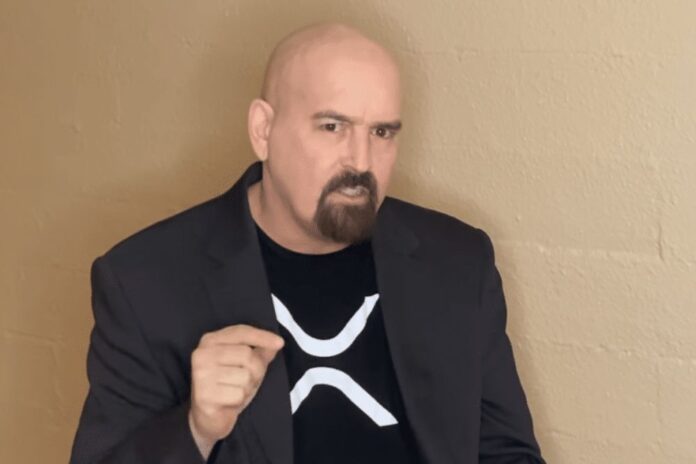It is no longer news that the protracted lawsuit between Ripple and the United States Securities and Exchange Commission (SEC) would likely end in June following a previous ruling by Judge Torres to unseal Hinman’s docs. This is seen as crucial in the judge’s final decision.
Amidst the speculations on whether the court case will go in favor of Ripple or the U.S. regulatory agency, two United States House of Representative members, Darren Soto and Tom Emmer, recently introduced a new bipartisan securities clarity act, which attorney John Deaton, CryptoLaw founder, and Pro-XRP lawyer recently reacted to.
Read Also: Ripple Returns Whooping 900 Million XRP after Unlocking 1 Billion Tokens from Escrow: Details
Brief Insight Into The Newly Introduced Securities Clarity Act
The latest securities clarity act aims to clarify digital assets that are securities. Per the new act, any digital acquisition offered as an investment contract during its early phase does not necessarily become a security asset.
Should the new securities act bill get passed into law, the U.S. SEC will find it hard to maintain its stance on most crypto assets as security.
Despite the remarkable Howey test expansion, the SEC chairman, Gary Gensler, could not ascertain if XRP or Ethereum (ETH) is security during one of the just concluded congressional oversight hearings. SEC’s chairman’s inability to clarify security assets might be part of the reasons for the new bill.
Attorney Deaton’s Expressive Response
In response to a tweet from a Twitter user, Michael Branch, Deaton expressed disappointment in the SEC’s unrelenting effort to expand the Howey test into secondary markets, which seemed to necessitate the need for the new bill.
John Deaton tweeted, “It’s sad that we need this bill due to out-of-control regulators attempting to expand the Howey test into secondary markets despite not being able to cite a single case where that’s been allowed.”
It’s sad that we need this bill due to out of control regulators attempting to expand the Howey test into secondary markets despite not being able to cite a single case where that’s been allowed. https://t.co/LLhAGLhVS4
— John E Deaton (@JohnEDeaton1) June 1, 2023
Crypto industry bosses believe that the unclarity in the SEC’s regulatory principles and guidelines for security assets has resulted in numerous enforcement actions against countless crypto outlets, which include LBRY and Kraken.
Read Also: Ripple Lawyer Moves to Withdraw as Counsel in XRP Lawsuit, But No Cause for Alarm. Here’s why
What Is The Howey Test And Why SEC Appears to Fault The Test
The Howey test is one of the most controversial aspects in the ongoing court procedures between Ripple and the U.S. SEC. The test could discern if a crypto transaction constitutes a security.
Per the U.S. SEC, Ripple’s XRP sales satisfy the Howey test prongs. On the other hand, the SEC’s assertion of Ripple XRP sales got discredited by Ripple’s top legal experts following the court procedures right from the onset.
Attorney John Deaton maintained that the SEC expanded the Howey test to an unexplainable point, stressing that the Howey test must apply to every transaction and not just the shorthand analysis SEC initially carried out in its Howey test application for XRP.
In addition, the United States regulatory commission failed in an attempt to single out investors who purchased XRP from Ripple and those who bought the cross-border asset from secondary markets. The failed attempt was believed to be part of the control body’s plot to implicate secondary market sales of the token. However, Deaton and over 75K XRP holders ensured the scheme backfired via an amicus curiae brief.
In conclusion, Deaton is confident that the amicus curiae brief filed by XRP enthusiasts will likely push Judge Torres to speak about XRP secondary in the much-anticipated summary judgment.
Follow us on Twitter, Facebook, Telegram, and Google News



